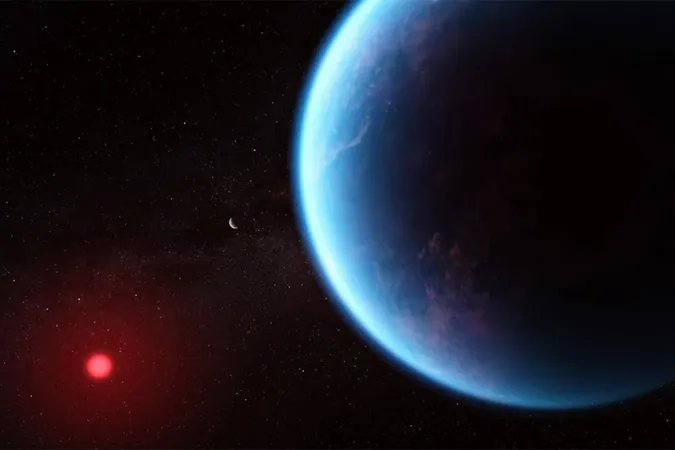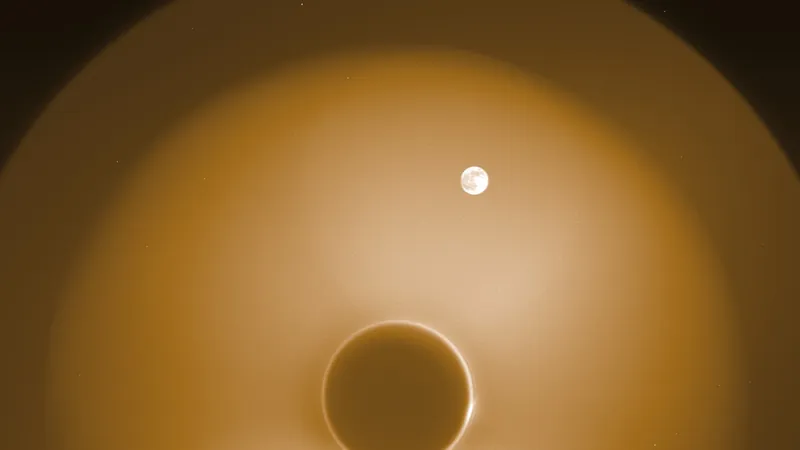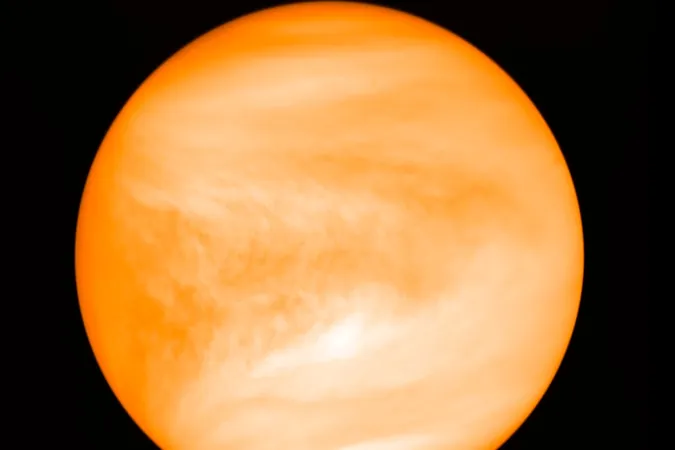
Are We Alone? Scientists Cast Doubt on Potential Signs of Life Found on Exoplanet
2025-04-21
Author: Michael
Are We Alone in the Universe?
The question that has intrigued humanity for centuries is back in the spotlight: Are we alone? Recent revelations from a team of astronomers using NASA's James Webb Space Telescope suggest a tantalizing possibility of life beyond Earth.
Breakthrough Discovery?
Last week, scientists announced they had found what could be the "strongest evidence yet" of life existing on an exoplanet named K2-18b. They detected chemical signatures of dimethyl sulfide and dimethyl disulfide, compounds associated with microbial life on Earth, particularly produced by oceanic phytoplankton.
A Habitable Ocean World?
K2-18b is located in its star's habitable zone, leading researchers to speculate that it might be a 'hycean' world, potentially filled with oceans brimming with life. However, before we jump to conclusions, scientist Nikku Madhusudhan from the University of Cambridge cautions, "We must remain deeply skeptical of our results." More data is needed to confirm these findings.
Voices of Skepticism
Despite the excitement, skepticism runs high within the scientific community. Måns Holmberg, a researcher at the Space Telescope Science Institute, emphasized that any claim of extraterrestrial life requires substantial backing and that the current evidence is insufficient.
Astrophysicist Dr. Ryan MacDonald expressed concerns regarding the statistical significance of the new observations, warning that they might be non-detections when evaluated on more established criteria. Meanwhile, Dr. Sara Seager from MIT flagged a lack of consensus amongst researchers on the planet's nature.
The Complexity of Interpretation
The SETI Institute has called the findings intriguing but cautioned that the signals detected are ambiguous, potentially attributable to noise or errors, and highlighted the existence of non-biological sources that could explain the compounds.
Astrobiologist Edward Schwieterman pointed out that simply finding these molecules doesn't confirm life, urging a thorough investigation of possible non-living processes that could produce them.
Extraordinary Claims Require Extraordinary Evidence
With questions looming about water availability on K2-18b and the potential randomness of the detected biosignatures, researchers are cautious. Laura Kreidberg from the Max Planck Institute posits, "Extraordinary claims require extraordinary evidence," suggesting we are not there yet.
Looking Ahead
While the excitement around K2-18b is palpable, NASA reminds us that discovering a single biosignature won't equate to confirming life. Extensive follow-up studies and collective evidence will be essential to validate or dismiss these groundbreaking claims, propelling humanity's quest for life beyond our planet forward.









 Brasil (PT)
Brasil (PT)
 Canada (EN)
Canada (EN)
 Chile (ES)
Chile (ES)
 Česko (CS)
Česko (CS)
 대한민국 (KO)
대한민국 (KO)
 España (ES)
España (ES)
 France (FR)
France (FR)
 Hong Kong (EN)
Hong Kong (EN)
 Italia (IT)
Italia (IT)
 日本 (JA)
日本 (JA)
 Magyarország (HU)
Magyarország (HU)
 Norge (NO)
Norge (NO)
 Polska (PL)
Polska (PL)
 Schweiz (DE)
Schweiz (DE)
 Singapore (EN)
Singapore (EN)
 Sverige (SV)
Sverige (SV)
 Suomi (FI)
Suomi (FI)
 Türkiye (TR)
Türkiye (TR)
 الإمارات العربية المتحدة (AR)
الإمارات العربية المتحدة (AR)